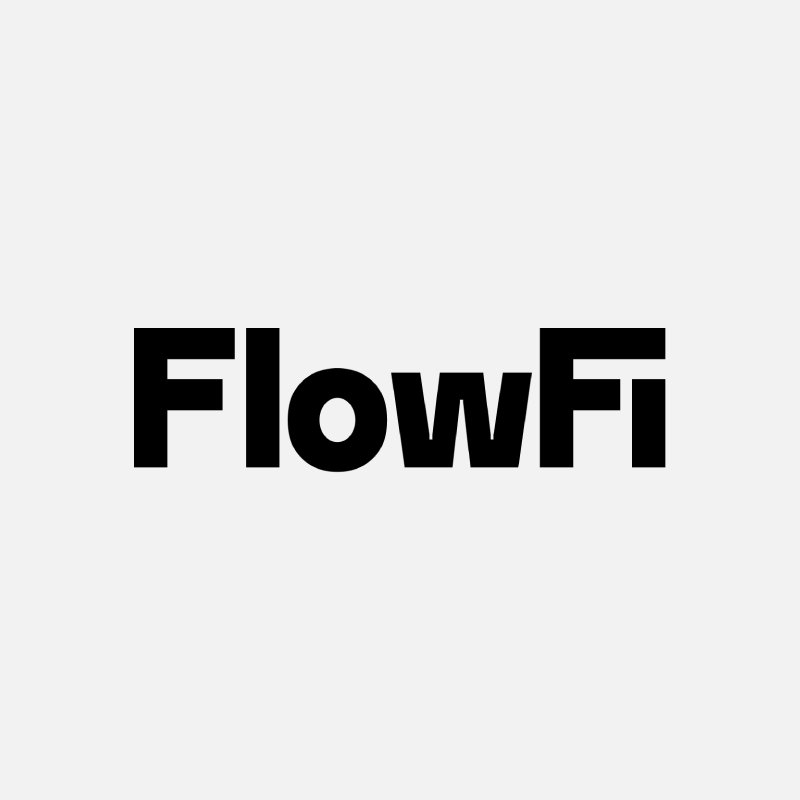On the Record with Nate Cavanaugh, CoFounder & Co-CEO of FlowFi
Hometown: Pittsburgh, PA
Hobbies: I’m a pretty simple guy. I work, and I go to the gym. But in my spare time I also like politics, sports, and studying other tech industries. In particular, I’m very interested in crypto.
A few words to describe you: rational and creative
***
Let’s start at the beginning: what were you like as a child and how do you think that shaped who you are today?
I played sports as a kid, so that probably started my competitive drive. I also grew up in an entrepreneurial family; my Dad founded multiple bootstrapped, high growth companies. I interned at his companies growing up, and I saw him grow his companies from pre-revenue to nine figures in annual sales. This gave me the opportunity to see the highs and lows of entrepreneurship, and I’m sure that’s at least part of where I got the “founder DNA”.
It’s clear that you’ve got the “founder DNA” from the fact that you went straight from one startup to the next. Many founders take longer breaks after exiting companies, but you jumped straight from Brainbase to FlowFi. What was your decision making framework like for taking over FlowFi so quickly?
Unlike Brainbase, FlowFi set out to solve a problem that I had myself. At Brainbase, I lacked confidence in our real-time KPIs, so I started FlowFi initially as a weekend project. Under a different set of circumstances, it’s very possible I would have taken a few months or a year in between the two companies. I knew FlowFi could be a really big business, and I wanted to be the one to lead it, but I didn’t really have a desire to be running two companies simultaneously. There was a period of time that was pretty stressful. But in this case, it was natural to increase my time at FlowFi after Brainbase was acquired.
On that note, how did your Founding team come together?
J.J. was actually the first investor in Brainbase. When I first moved to LA to start Brainbase, I didn’t have a VC network, and so a mutual contact introduced me to J.J. We built a strong relationship over seven years of working together. He was always the first investor I would call if I had a question, even after we had larger funds on our cap table. When I told him about FlowFi, it clicked instantly. Not only did he understand the problem, but he had been seeing the exact same problem for founders across his portfolio. He and I decided to co-lead FlowFi as co-founders.
What would you say has been your biggest or most unexpected challenge?
Both times I have gone out to raise money, it was in the middle of a terrible macro environment. In my first company, we raised our Series A in March 2020, literally one week after the pandemic started. For FlowFi, it was late 2022/early 2023.
I’m not complaining – it builds character – but it might have been more fun to raise in November 2021, for example!
What excites you most about the work you’re doing?
I am the customer of our product, and I can very quickly understand if a feature will resonate with our users. While we still do a lot of customer feedback calls and user interviews, J.J. and I truly understand the user mentality of our customers, and this allows us to move faster. We have a lot of conviction and trust in what we’re building—we use FlowFi to run our own business!
Now that you’re running your second company, do you think you’ve identified a leadership style?
When people first join the company, I try to give them a long leash, so to speak. I let people come in and do their thing post-onboarding. I try not to micromanage. Ideally, you hired this person because they will be better at doing the job than you. But if they show me that they aren’t able to run independently, or don’t produce great work within the first 60-90 days, then the leash gets shortened quickly.
What does company culture mean to you?
Company culture to me is about striving for excellence — it’s not about Kind Bars and fancy offices.
The people you hire early are super important because they are the ones who hire the next set of people. So, I try to be deliberate about who we bring on to the team, while also making sure to let people go when it’s not working out. In general, we try to hire slow and fire fast.
Separately, when it comes to our product, we have a very design focused culture. Product design matters a lot. Founders have a high bar for products they want to use, so if you don’t have a beautiful product, I believe you’re DOA.
Are there any books you ask your team to read?
I don’t mandate anything for anyone, but I like to send everyone High Output Management by Andy Grove. Frequently in a startup, it’s the first time that young people are managing others, and High Output Management is a great book for general management advice. It advises on how to conduct 1:1s, how to give feedback the right way, etc... I also really like “The Hard Thing About Hard Things” by Ben Horowitz.
Okay, now that we’ve covered your background and FlowFi, let’s learn more about Nate as an individual. Who do you think has been your biggest inspiration as an entrepreneur?
I look to Peter Thiel for a lot of my thinking and modeling about the world and business. I think he’s one of the smartest people in the tech industry. His insights and predictions about markets, macro environment, and politics are quite good.
Are there any life lessons you live by?
It always works out. If you stick with something and don’t quit, it always works out.
Lastly, what do you hope to be remembered for if you achieve everything in your life?
Being willing to take unconventional, high risks that benefit large numbers of people. I’d also love to build an organization that can last beyond when I’m alive.
***
Nate Cavanaugh is the Co-founder and Co-CEO of FlowFi.
At age 20, Nate co-founded Brainbase, an enterprise SaaS company for IP licensing management. As CEO, Brainbase raised $12M from top VC firms including Bessemer Venture Partners, and its customers included brands like BBC, Hasbro, MGM, Mondelez, Nissan, and UCLA. The company grew to 7-figures of annual recurring revenue and was acquired by Constellation Software in 2022.
In 2021, Nate co-founded of FlowFi, a SaaS-enabled marketplace that connects startups and SMBs with finance experts. FlowFi has raised $10M from top VC firms including Blumberg Capital, Differential Ventures, Clocktower Ventures and Precursor Ventures, and generated 7-figures of annual recurring revenue in its first year.
Nate was nominated to the Forbes 30 Under 30 list for Enterprise Technology.



